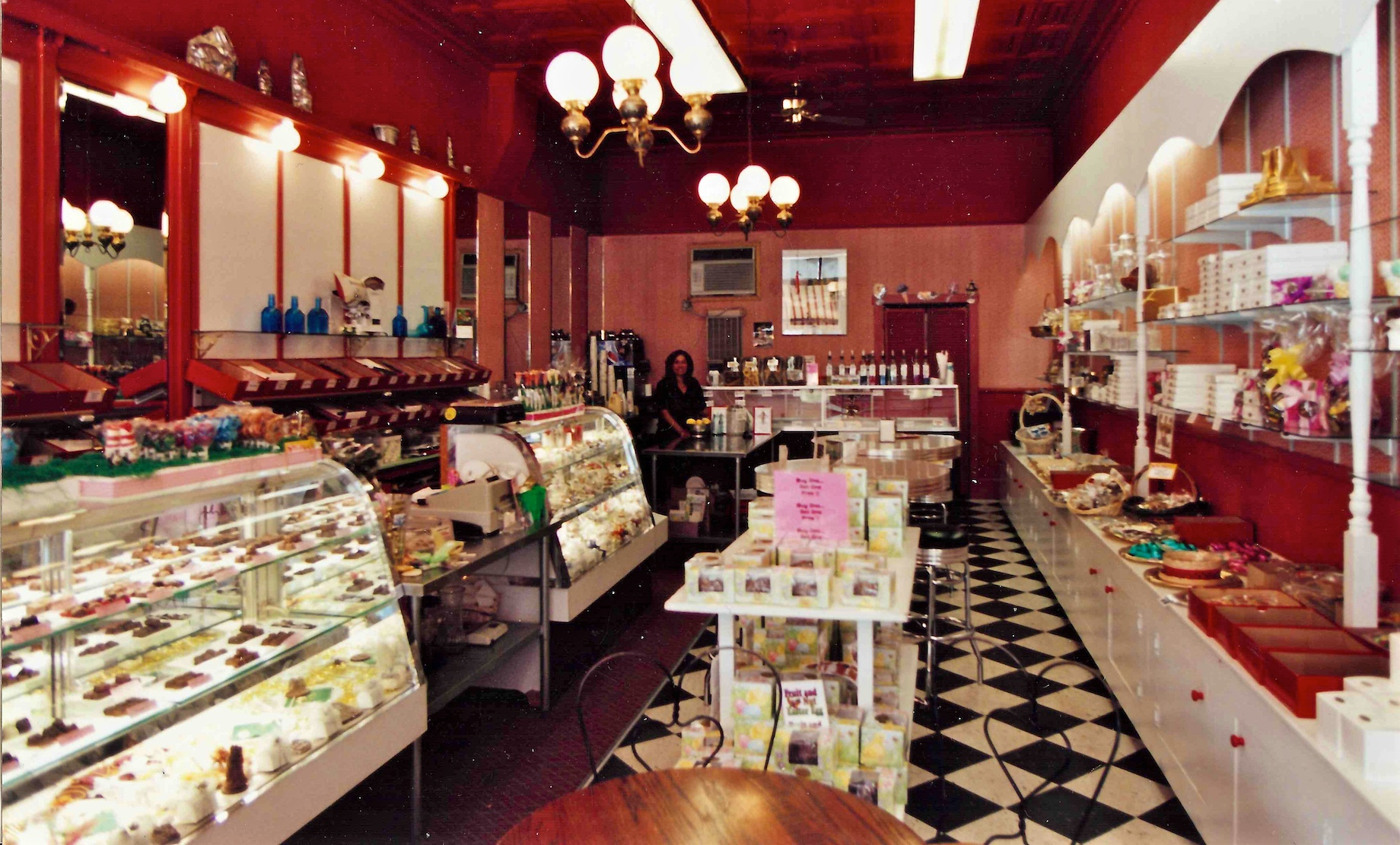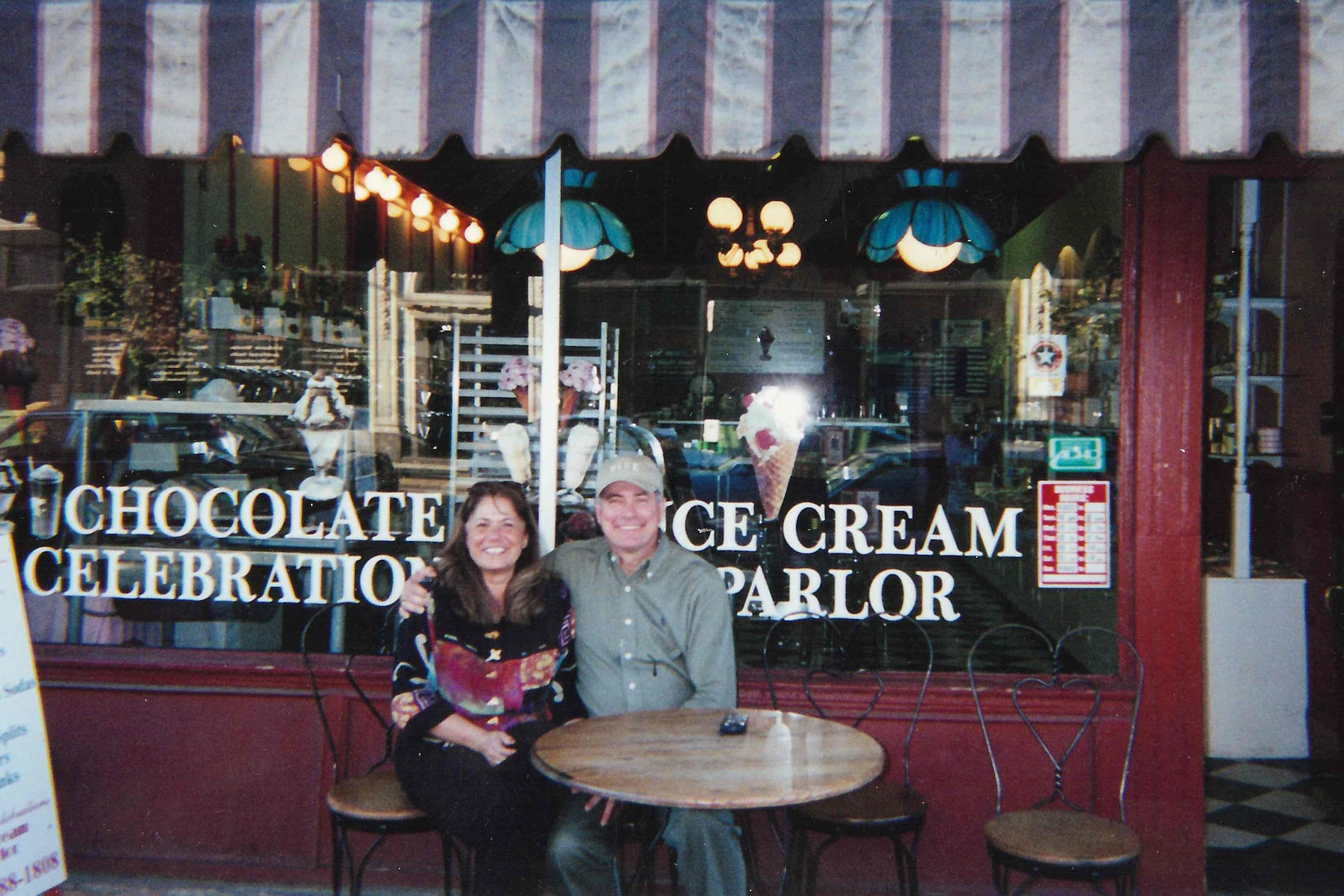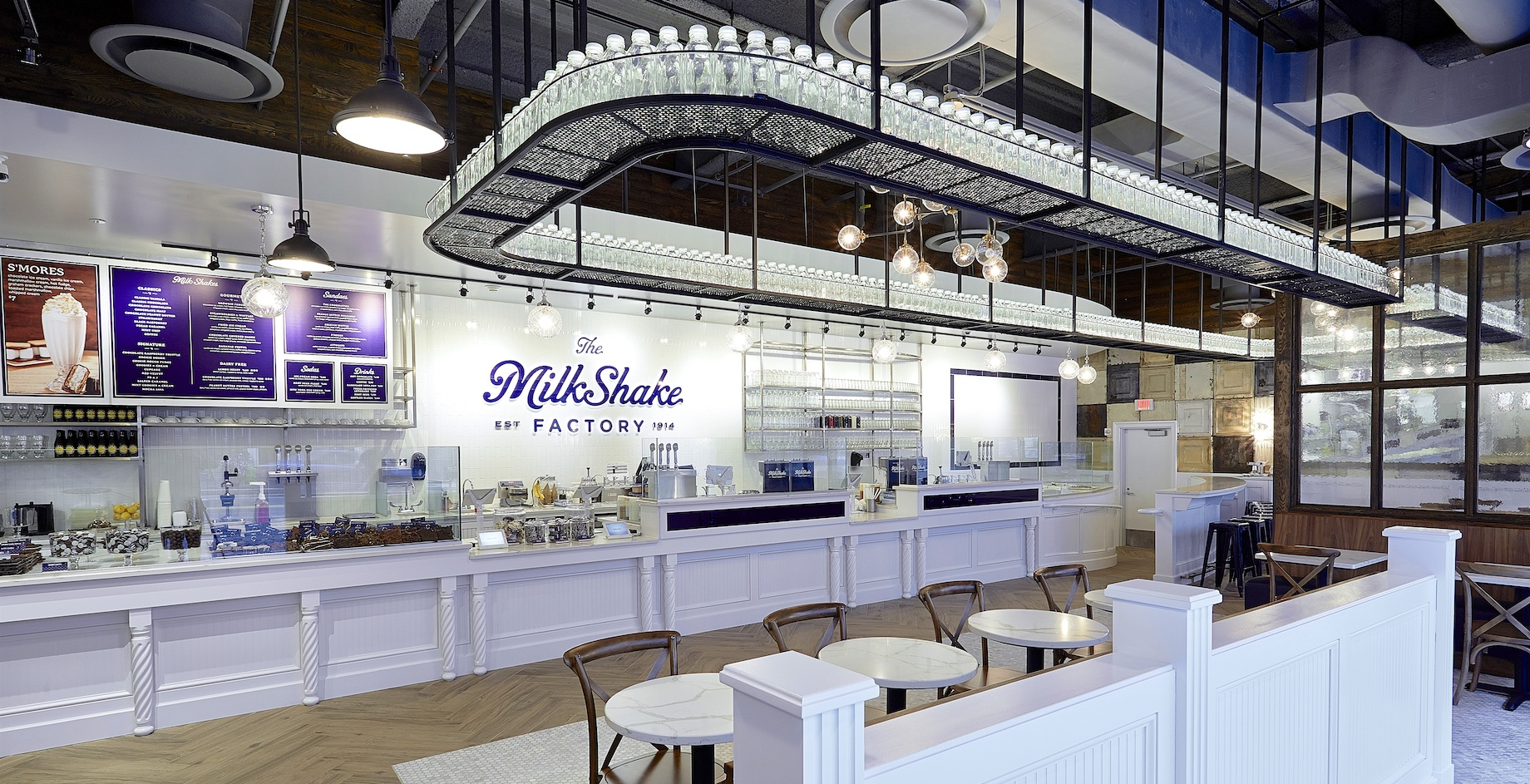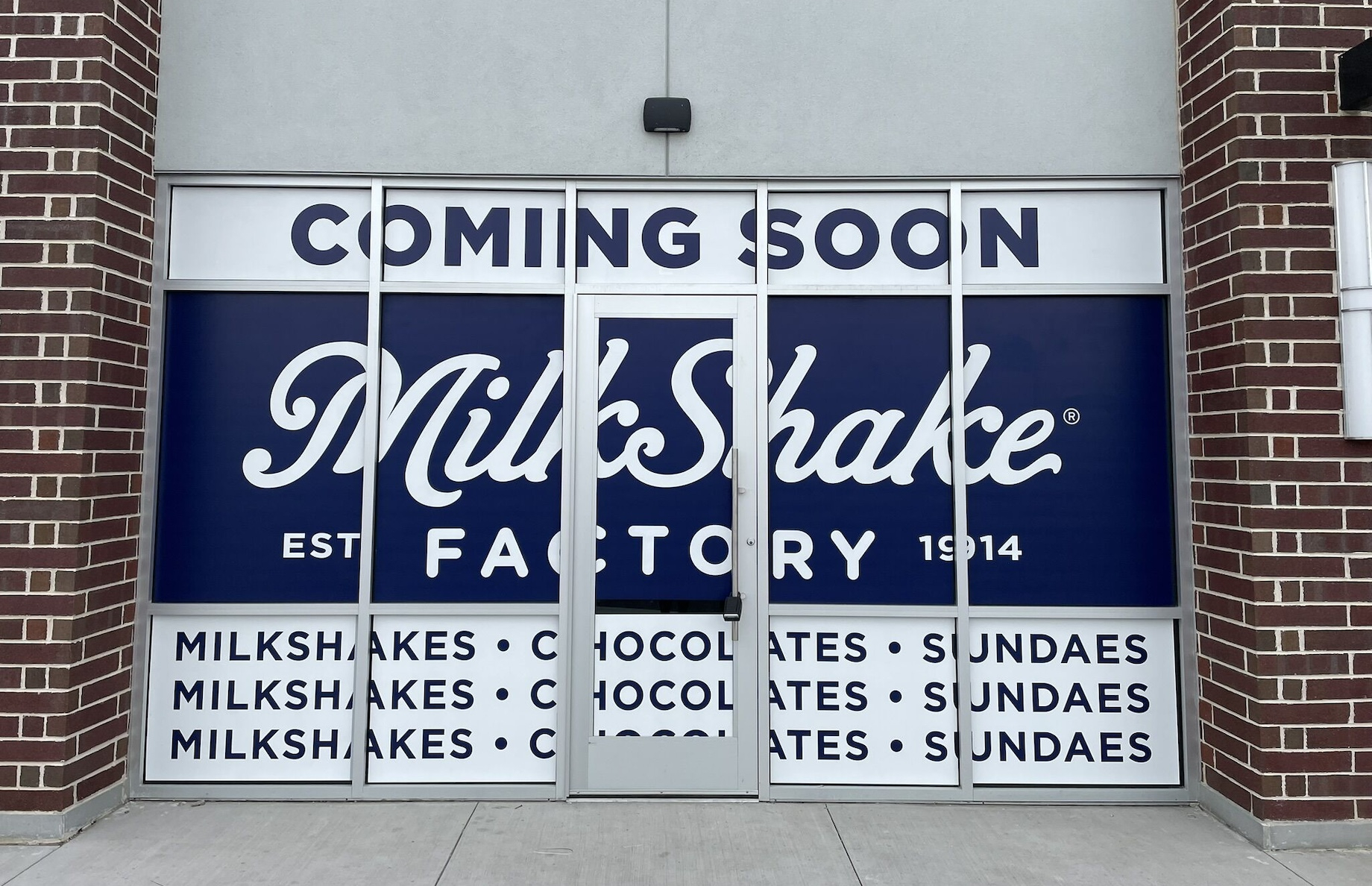Everyone loves chocolate, sure, but its sales are seasonal, peaking during Christmas, Valentine’s Day and Easter. In 2003, Dana Edwards Manatos was looking for a way to create more year-round for her family’s Chocolate Celebrations factory and store. She landed on the idea of milkshakes. “The core of any good business is to do what you love, right?” Edwards Manatos said. “And I love milkshakes.”
She also figured they make for more of a novelty draw than ice cream does. Plus, “we know how to make flavors and purees and centers to candy and chocolates, she said, “so I just took that expertise that we had in our family and what we grew up doing and we put that into the milkshake.”
The decision proved to be a game changer. Customers flocked to the Pittsburgh chocolate shop specifically for those handmade milkshakes. For 30 years, it had specialized in handcrafted truffles, caramels and the like, but the spot soon flipped in people’s minds into “the milkshake shop that sold chocolate,” said Edwards Manatos.
The concept gained traction. Today there are 11 MilkShake Factory locations around Pittsburgh, and Edwards Manatos and her brothers think the concept would resonate nationally. In 2022, the family decided to franchise, and this spring, the first franchise store will open in Salt Lake City.
Edwards Manatos spoke with ICSC Small Business Center and Commerce + Communities Today contributing editor Rebecca Meiser about rebranding, expanding, deciding to franchise and finding locations.
Tell us your origin story.
My family’s been in the chocolate business since 1914. My great-grandparents came over from Greece through Ellis Island and settled in Pittsburgh. The only thing they knew how to do was make candy, so they started making them on a street corner for a living and saved up enough money to buy a retail store, which became our family’s first shop. After that, each generation has come into the business and really just evolved it. My brothers and I are the fourth generation.

Dona Edwards in the family’s original candy shop on Pittsburgh’s South Side. Her daughter, Dana Edwards Manatos, led a pivot of the business, and this space became Milkshake Factory’s first location.
What made you decide to change the name of the store from Chocolate Celebrations to Milkshake Factory?
The new milkshake concept started doing really well. We still sold our chocolate, of course, but we realized that there was something special about the milkshakes we made that was driving people into the store. We changed the name on the front of the building after we saw the traction that it started getting.

Dona and Jeff Edwards outside the original shop, called Chocolate Celebrations
Was the rebranding hard for customers?
There was a transition, yes, but really, why people came to our store was [for the experience]. Our family had had that original chocolate shop location for 30 years, so they knew it as our family [store], not necessarily a brand. It wasn’t too difficult to transition that store because our loyal customers were there, and then the new customers that were coming in really knew it as the milkshake place.
Was your goal always to expand to multiple locations?
Our goal was to expand, but after college, my brothers and I worked at the White House in the Office of Presidential Advance, which handles all logistics and events for the president. We learned how to execute at the highest level you possibly can. After we left the administration, we went back into the family business, and we decided to start growing it. We stayed in Washington, D.C., and we started selling corporate gifts and working with some retailers. We sold our chocolates to Saks Fifth Avenue and Dean & DeLuca, and then we were awarded a contract for a chocolate shop inside the Pentagon. That was a really unique store because you have a captive audience of 30,000, and there’s not many places to go. The store did phenomenally well. And a Costco buyer in the Northeast read about us, and she picked [our chocolate] up, too.
PNC bank was building its brand-new global headquarters in downtown Pittsburgh. They have about four or five towers in downtown Pittsburgh. They asked us to go into a retail space. We said we didn’t want to stretch ourselves too thin, but they kept asking and we really couldn’t refuse them any longer so we agreed. My brothers and I divided our responsibilities. They stayed on in the chocolate business. I went over to the MilkShake Factory because that’s what I created, and we properly branded the company from our mom and pop design to the brand it is today. The PNC location was really where we saw a big turning point. We had no announcement, no marketing, but there was a line out the door within an hour of our opening.

After a Pentagon location, the first permanent expansion of MilkShake Factory opened in PNC’s downtown Pittsburgh headquarters in 2016.
What made you decide to franchise? Was that always the plan?
We just went out to build a really good business that would make our great-grandparents proud, but as we started [expanding in Pittsburgh], we realized that we had the perfect franchise model setup and we started talking about what the next phase in our journey should look like. Our business was started as a family business, and we realized that we wanted to give other families the same opportunity that we had in Pittsburgh to do what we did in their communities.
We, as a family and as a business, knew very well how to run Milkshake Factories, but we didn’t know how to franchise. So we decided to spend a full year educating ourselves on what franchising was. We partnered with Franworth, located in Ann Arbor, Michigan. In my opinion, it’s the leading franchise development company in the country. Franworth looked at our entire business from soup to nuts. They look at your numbers, your floor plan, your square footage, the cost to build out, your revenue, your cost of goods: all of those go into what makes a good franchise. They also compared [Milkshake Factory] to what was on the market and out there already. And most importantly, they came and vetted the product itself. They walked out of there that day saying: “Let’s go do this.”
“Our business was started as a family business, and we realized that we wanted to give other families the same opportunity that we had in Pittsburgh to do what we did in their communities.”
Did you have goals for where you wanted to be located?
We knew there were really great markets in the country to sell milkshakes. Pittsburgh probably wouldn’t fall on that list, by the way; it’s cold and it’s really snowy for a big chunk of the year. But we knew the weather is such a driver, so obviously locations in the South were a big target. One of my favorite locations, which is actually our first franchisee, is in Salt Lake City, Utah. The Salt Lake region was always one of our best chocolate regions at Costco. It always sold out first, so I knew that region was going to do phenomenally with the Milkshake Factory. We’ve sold franchises in places like Dallas; Colorado Springs; Atlanta; Pensacola, Florida; and Charlotte, North Carolina. We’ve sold 60 franchises over the last six months.

The first franchise location of MilkShake Factory will open soon in St. John Properties’ Valley Grove mixed-use business community in Pleasant Grove, Utah.
What is your criteria for selecting franchisees?
First, [interested individuals] go through a long pipeline of calls and meetings to understand what our business is and who we are. And then, they come to Pittsburgh. It’s called Discovery Day. We host them, we show them around, and we take them to the stores. They learn how to make a milkshake. And after that, we all get together and have dinner. When we meet these people, we really have to click. We want to have the right cultural fit. Being a part of the community is a big part of who the Milkshake Factory is. People come and take their wedding photos at our stores because it was their first date. It’s one of those special places you just have a really good feeling about when you walk in. Figuring out how to take that and replicate it with the right franchisee is really important.
Franchisees must believe in your concept, as well. What sort of franchisees are attracted to Milkshake Factory?
We are the model for people who want to be a part of the food-and-beverage community without the complexity of food and beverage. We don’t have hoods. We don’t have fryers. We don’t have large kitchens. [When franchisees] walk in the back of the house and see it’s clean and simple and small, they can’t get over it.
How do you help franchisees find real estate?
It’s a combination of all of us working together. We have brokers that we work with across the country. We pair them up with a franchisee in the market they are in, and Build’M Group handles all real estate construction from the time they get their lease to the time they get their doors open.
What are you looking for in terms of sizes?
Our range is 1,350 to 1,550 square feet, and we’re really looking for real estate that is part of the community. As far as co-tenancies, we’re looking for restaurants and places people go to hang out, but in any place across the country, that can mean a lot of different things: downtown, suburbs, college campuses. It’s really about finding a place that’s a part of the community.
What are the hardest things about owning a franchise?
How difficult it is to find franchisees and get connected with them. Also, the food-and-beverage supply chain is extremely complicated, so we’ve been grateful having somebody with us the entire way figuring out how to navigate this enormous, complicated puzzle and put it together with us. The best decision we made was to partner with an expert. People do not know how many franchisees fail, especially in the first year or two. It is very complicated, and there are land mines everywhere. Partnering with somebody who knows what they’re doing and how to step away from those land mines is so invaluable.
Where do you want Milkshake Factory to be in five and 10 years?
It’s not about a number. It’s not about hitting anything. It’s about continuing to build the business responsibly. It’s about making sure that we are partnering with the right franchisees who have the same culture and mentality that we have. We probably could have gone out and sold a lot more units in these last six months, but our big thing is responsible growth. We’re going to keep building good business just like we did in Pittsburgh.